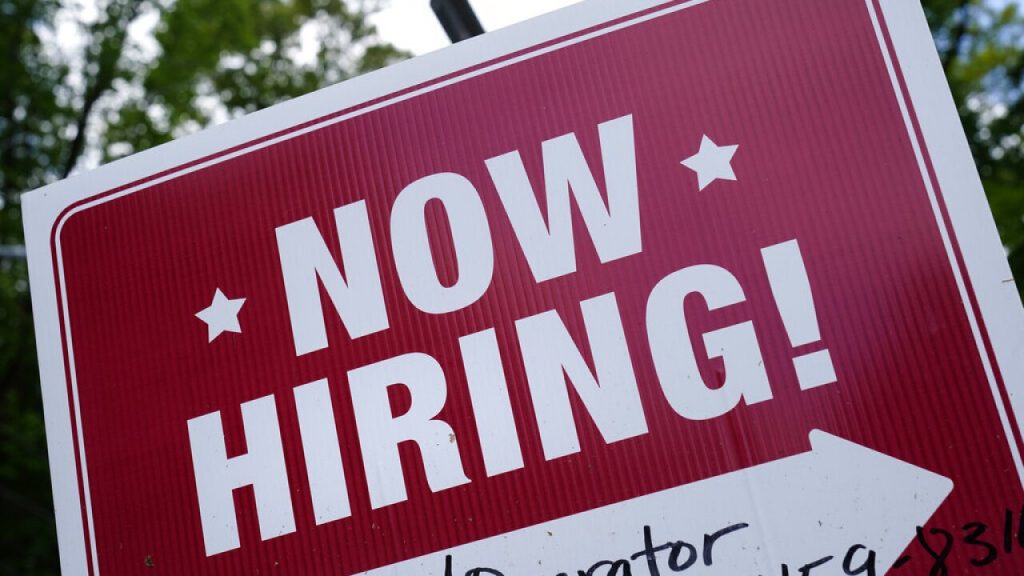Parenting is full of difficult decisions, and they don’t get easier as the kids get older.
A recent viral TikTok video had parents of young adults buzzing about where to draw the line between supporting older teens or twentysomethings and expecting them to pay their share of living expenses.
Cody and Erika Archie of Gatesville, Texas, shared a video on TikTok explaining how they planned to charge their 19-year-old daughter Kylie rent once she graduated high school. They asked for viewer opinions on the subject.
“Our thought together is that since [Kylie] has graduated, I told her — and I have been telling her the last couple of months — that hey, June the 1st, your rent’s due if you’re going to continue to live here,” Cody explained.
@bar7ranch How do you feel about making your adult children pay rent to live at home? This is a REPOST from last year but since its on Fox Business News right now we thought we’d chat about it again! #Parenting #ParentsChargingRent #AdultChildren #DryHumor #Sarcasm #MarriageHumor #Marriage #CoupleTok #RanchTok #AgTok #KeepRanchin #KingOfTikTok #RanchLife #Ranch ⬠original sound – Bar 7 Ranch
The couple explained their daughter would pay $200 a month if she bought her own food or $300 a month to have her food provided by her parents. It didn’t take long for viewers to debate the merits of charging kids rent in their own house.
High Prices Are Delaying Empty Nests
The Archies aren’t alone when it comes to a delayed empty nest. The number of young adult children choosing to live at home is the highest it’s been in almost 80 years as their generation faces an unfortunate series of economic challenges.
A survey conducted by Rent.com showed the median U.S. rent cost in November 2023 was $1,967 monthly. This, along with the high cost of cars, gas, utilities and groceries has pushed nearly 23 million people between the ages of 18 and 29 to live with their families, according to a Harris poll conducted by Bloomberg — that’s 45% of the age demographic, a level hasn’t been seen since the 1940s.
And it’s not just becoming more acceptable for young adults to live with their families, it’s become a sound economic strategy that allows them to save for the future. Many parents seem to be on board, too, with 45% of them providing an average of $1,400 in financial help to their children each month.
My husband and I have two adult daughters, ages 25 and 21. The oldest has lived in her own apartment for six months and the youngest should be graduating college later this year. We chose to not charge them rent while they live at home. It didn’t feel like a controversial choice at all.

MORE: 11 things parents need to teach to kids before they move out
The Pandemic’s Impact on Young Adults
The COVID-19 pandemic hit everyone hard, so that is not a unique situation. However, our girls were 17 and 21 when the world shut down. Both were home from school and then lost their summer jobs at an overnight camp that covered their housing and meals. Both eventually found work in the summer of 2020; however, we wanted them to save their earnings to use toward college.
No money earned means no rent. I’m not a landlord who doesn’t care about tenant circumstances.

Setting Priorities: School Over Job
We encouraged our daughters to go to college because we feel it is the best path towards their future.
Because of their academic and on-campus job commitments (scholarship and residence advisor jobs), they didn’t have jobs to earn extra money. We told them school had to be their priority.

The following summer, they got jobs where they lived on-site and earned free room and board — but at the price of being on the clock more than 16 hours a day and responsible for children all summer at an overnight camp.
When they came home, I wasn’t going to ask them to fork over the little money they earned for a bed and a meal.
A Job May Not Be Enough
For many, a full-time, minimum-wage job won’t cover rent, never mind the rest of the bills.
The Federal Reserve of New York reports that around 40% of recent college graduates are underemployed, or working in jobs that do not require a college degree. As a result, many of these employees are working at or just above minimum wage. That kind of paycheck makes it almost impossible for many young people to afford an apartment.
A Zillow study looked at the 50 largest cities in the U.S. and found that,
based on the federal minimum wage of $7.25 per hour, it would take almost four full-time minimum wage workers to afford an average two-bedroom rental. Cities with a higher minimum wage would still require about 2.5 full-time minimum wage workers to pay for each apartment.
With rent so high and wages not keeping up, how can a young adult just starting out be expected to make ends meet without support? In our case, we chose to let our girls save the little money they were making so they could eventually afford an apartment.

MORE: Young adults are moving in with their parents in the highest numbers since the Great Depression
Our oldest eventually found a full-time job that paid above minimum wage. With her savings, she was able to put down a security deposit on her first apartment and pay her rent on time. The choice to not charge her rent likely helped her afford her new place when the time was right.
When We Would Charge Rent
Is there a time when we would ever charge rent to our adult children? Absolutely. They would have to come home, sit on their butts, not look for work and expect us to take care of them. Such a sense of entitlement would definitely lead to a rent bill every month.
Perhaps even if they were home and working, I’d collect a small amount of money each month for “rent,” and then save it for them. When they move out, I’d give it back to them and wish them well.
Supporting our children has given them the foundation to build their independent lives. I am grateful we’ve had the means to do so and know that’s not true for everyone. My family’s choices aren’t right for everyone, and that’s why parents shouldn’t be condemned for their decisions about what’s best for their family.
This story originally appeared on Don't Waste Your Money.


